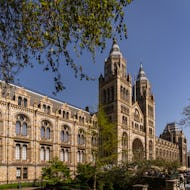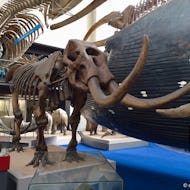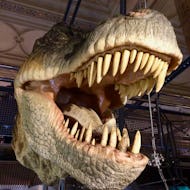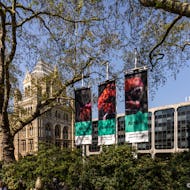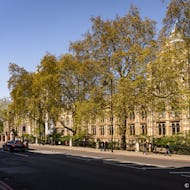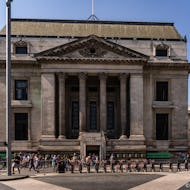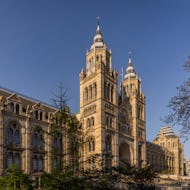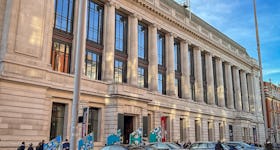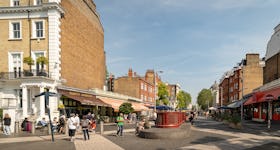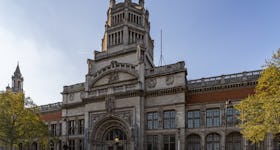The museum is in South Kensington alongside Science and Victoria and Albert Museums. London has numerous world-famous attractions, and the Natural History Museum is undoubtedly at the forefront. It has an extensive collection of over 80 million items related to natural history, making it the world’s most important natural history collection.
History
The origins of the museum’s collection are based on the collection of Sir Hans Sloan (1660-1753), a doctor and a collector who, in his will, allowed the government to purchase his collection well below market value.
The current building in South Kensington was architected by Francis Fowke, who won a competition to design the museum in 1864. After he passed away, Alfred Waterhouse modified the designs to be Romanesque and more suitable for London’s weather.
The new Natural History Museum building opened its doors in 1881, although its origins trace back to the mid-18th century. Originally part of the British Museum, it gained independence due to its expansive collection and was officially renamed the Natural History Museum in 1992.
Highlights and Exhibits
The magnificent museum takes the whole block along Cromwell Road. It is instantly recognisable with its two central towers and the beautiful facade. The main entrance is in the centre of the building below the towers.
There are several exhibits in the museum from different areas of natural history. When entering the museum from the main entrance, you’ll reach the magnificent Hintze Hall, featuring a 25.2 m blue whale suspended from the ceiling.
The museum has several zones, each concentrating on specific themes.
Blue Zone
In the blue zone, the museum’s legendary dinosaur exhibit features many skeletons and fossils that transport you back to the prehistoric era.
There is also an extensive collection of mammals, for example, polar bears, and a collection of fish, amphibians and reptiles.
Green Zone
The Green Zone includes the Hintze Hall mentioned above. There is also a bird section, including an extinct dodo bird, and a section for creepy crawlies with insects, crabs and spiders.
Red Zone
Red Zone is about Earth and the forces shaping it, i.e. volcanoes and earthquakes, together with minerals and gemstones. There’s an area devoted to human evolution where you can delve into our ancestral past and learn about the evolution of Homo sapiens through fascinating artefacts.
Orange Zone
The orange zone has the Zoology spirit building, with over 20 million specimens stored in alcohol. There’s also The Cocoon, where you can explore science and nature and meet experts.
Tips for Visitors
The museum offers free entry to its main collection, although some special exhibitions may charge a fee. It’s easily accessible via the London Underground, with South Kensington being the nearest station. One of the station exits leads directly to the museum.
There is also a cafe with food and hot and cold drinks and a shop for souvenirs and nature-inspired gifts.
Events and Workshops
Regularly hosting workshops, family events, and temporary exhibitions, there’s always something new to discover. Check the museum’s calendar for up-to-date information on upcoming events.
